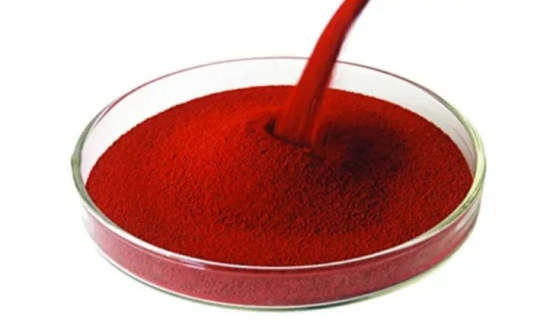What are the effects and functions of PQQ (pyrroloquinoline quinone)
10/14/2025 11:06:11
PQQ (pyrroloquinoline quinone)
PQQ (pyrroloquinoline quinone) has a variety of effects and functions, mainly including the following aspects:
Antioxidant effect
Scavenging free radicals: PQQ is a very powerful antioxidant that can effectively remove free radicals in the body, such as superoxide anion free radicals, hydroxyl free radicals, etc. Free radicals are harmful substances produced by the body during metabolism. They attack biological macromolecules in cells, such as DNA, proteins and lipids, causing cell damage and aging. Studies have shown that PQQ's ability to scavenge free radicals is 50 to 100 times that of vitamin C. For example, in in vitro experiments, PQQ can significantly reduce cell damage caused by oxidative stress and protect cells from free radicals. Protect mitochondria: Mitochondria are important organelles for generating energy in cells, and are also the main site of free radical production. PQQ can protect mitochondria from oxidative damage and maintain the normal function of mitochondria. It can promote the biosynthesis of mitochondria and increase the number and quality of mitochondria. For example, in animal experiments, administration of PQQ can improve the respiratory function and energy production efficiency of mitochondria and improve the energy metabolism state of cells.

Promote growth and development
Stimulate cell growth: PQQ has a growth-promoting effect on a variety of cells, including nerve cells, cardiomyocytes, hepatocytes, etc. It can promote cell proliferation and differentiation, and accelerate tissue repair and regeneration. For example, in nerve cell culture experiments, PQQ can significantly increase the number of nerve cells and the length of neurites, and promote the growth and development of nerve cells. Influence on reproductive development: Studies have found that PQQ also has an important effect on the reproductive development of animals. It can improve the reproductive performance of animals and increase the survival rate and weight of offspring. In a study on mice, the weight of the offspring born by mothers given PQQ was significantly higher than that of the control group, and the growth and development of the offspring was better.
Neuroprotective effect
Improve cognitive function: PQQ has a protective effect on the nervous system, can improve cognitive function, and prevent and treat neurodegenerative diseases. It can promote the growth and survival of nerve cells, enhance nerve signal transmission, and improve learning and memory ability. For example, in animal experiments, administration of PQQ can improve the learning and memory ability of elderly mice, reduce the deposition of amyloid in the brain of Alzheimer's disease model mice, and protect neurons from damage. Reducing nerve damage: PQQ can also reduce inflammatory response and oxidative stress after nerve damage, and promote nerve regeneration and functional recovery. For example, in the spinal cord injury model, administration of PQQ can reduce inflammatory cell infiltration at the site of injury, promote the regeneration of nerve axons, and improve motor function recovery.
Enhance immunity
Activate immune cells: PQQ can activate immune cells, such as macrophages and natural killer cells, and enhance the body's immune function. It can promote the proliferation and differentiation of immune cells, and increase the activity and killing power of immune cells. For example, in in vitro experiments, PQQ can significantly enhance the phagocytic ability and bactericidal activity of macrophages, and improve the killing effect of natural killer cells on tumor cells. Regulate immune factors: PQQ can also regulate the secretion of immune factors, such as interleukins and interferons, to maintain the balance of the immune system. It can promote the production of immune factors and enhance the body's anti-infection and anti-tumor capabilities. For example, in animal experiments, administration of PQQ can increase the level of immune factors in serum and enhance the body's immunity.

Other effects
Protect the liver: PQQ has a protective effect on the liver, can reduce liver oxidative damage and inflammatory response, and prevent and treat liver disease. It can promote the regeneration and repair of liver cells and improve the liver's detoxification function. For example, in the alcoholic liver disease model, administration of PQQ can reduce fat deposition and inflammatory cell infiltration in the liver and protect liver cells from damage. Improve sleep: Some studies have shown that PQQ may have an improving effect on sleep. It can regulate the function of the nervous system, relieve anxiety and tension, and promote sleep. However, the current research on the effect of PQQ on sleep is still relatively limited, and more research is needed to confirm its role. Anti-fatigue: PQQ can improve the body's energy metabolism level, enhance endurance and anti-fatigue ability. It can promote mitochondrial biosynthesis, increase energy production, and reduce the accumulation of fatigue substances. For example, in the exercise fatigue model, administration of PQQ can prolong the animal's exercise time, improve exercise endurance, and reduce fatigue.




